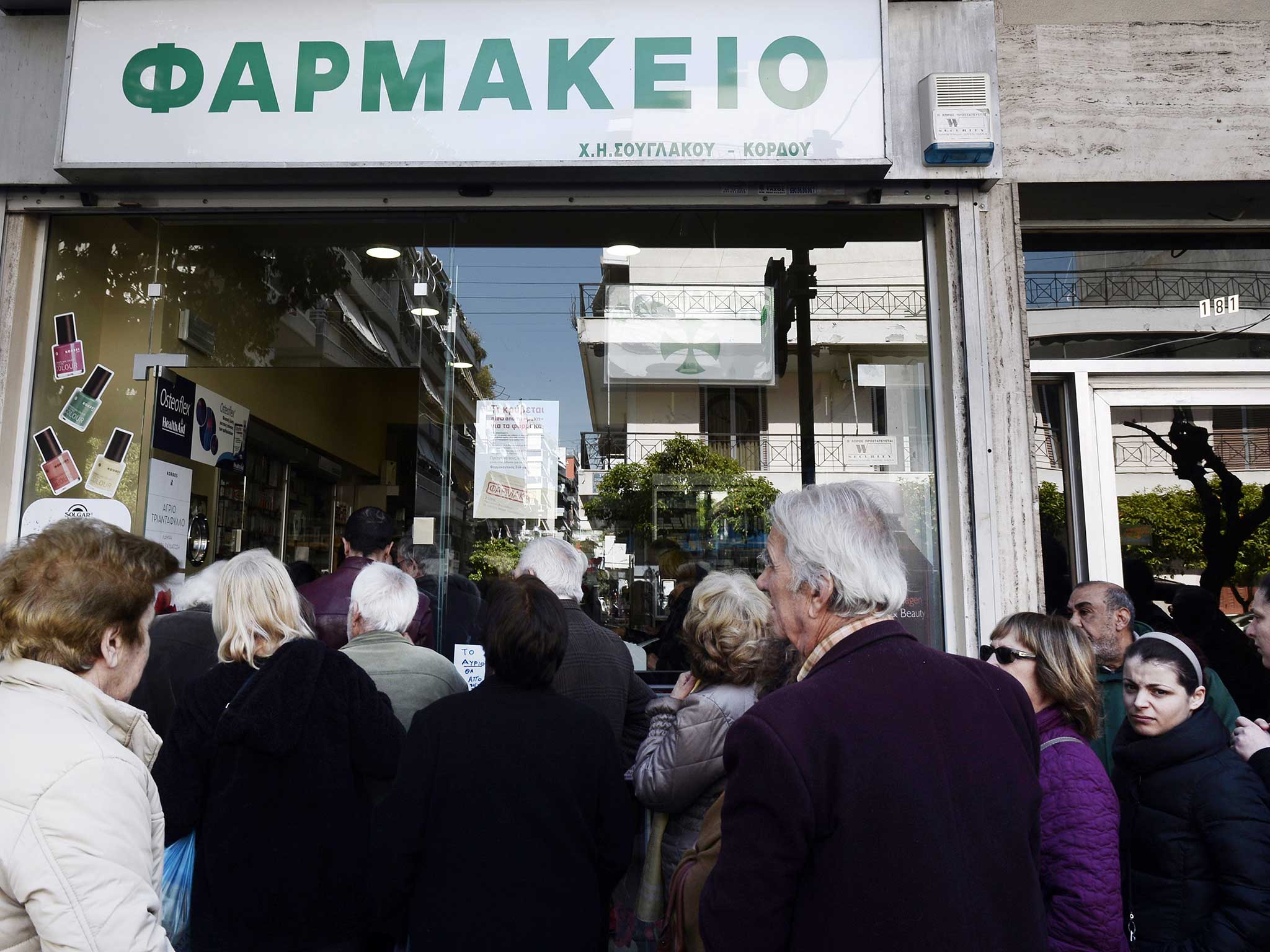Greek debt crisis: Food and vital drug 'shortages' ahead of historic referendum tomorrow
Greece will go to the polls tomorrow to decide whether to accept a deal from EU and IMPF creditors

Your support helps us to tell the story
From reproductive rights to climate change to Big Tech, The Independent is on the ground when the story is developing. Whether it's investigating the financials of Elon Musk's pro-Trump PAC or producing our latest documentary, 'The A Word', which shines a light on the American women fighting for reproductive rights, we know how important it is to parse out the facts from the messaging.
At such a critical moment in US history, we need reporters on the ground. Your donation allows us to keep sending journalists to speak to both sides of the story.
The Independent is trusted by Americans across the entire political spectrum. And unlike many other quality news outlets, we choose not to lock Americans out of our reporting and analysis with paywalls. We believe quality journalism should be available to everyone, paid for by those who can afford it.
Your support makes all the difference.Greek pharmacists and supermarkets warned of vital drug and food shortages as the country’s Prime Minister delivered a defiant message to the population last night.
Addressing a rally of some 25,000 supporters Alexis Tsipras urged the crowd to vote ‘No’ on Sunday’s referendum, telling voters to defy “those who terrorise you”.
It was a bold message, but one at odds with reports emerging from people at the frontline services of a country crippled by debt and haemorrhaging important tourist incomes.
Pharmacies are reportedly out of vital drugs, such as Thyroxine - used to treat Thyroid conditions - with one chemist confirming she had “shortages”.
Mary Papadopoulou, who runs a pharmacy in Plaka district, told the Guardian that “unless things change dramatically we’ll be having a lot more shortages next week.”
It is not the first warning. Last week the European Federation of Pharmaceutical Industries and Associations (EFPIA) wrote to the European Commission to warn the Greek medicine supply chain is more complicated than other EU nations and therefore “particularly vulnerable” to disruption.
The public letter added that should the supply chain fall, this could present "a risk to public health".
The majority of Greece’s drugs are imported, with the country owing international companies an estimated €1.1bn (£779m), and although the largest companies – such as GlaxoSmithKline and AstraZeneca – have drawn up contingency plans it remains unclear what will happen should a Grexit take place.
Meanwhile, restaurants and hotels – as well as basic supermarkets – have claimed to be suffering from food shortages. The islands of Mykonos and Santorini, hugely popular tourist destinations, have claimed they are running out of basic foodstuffs.
“Imports, exports, factories, firms, transport – everything is frozen,” Vasilis Korkidis, head of the national Confederation of Hellenic Commerce, told the Guardian.
Like medicine, much of Greece’s food is imported but with the banks no longer able to transfer cash, companies have been left unable to pay suppliers.
Join our commenting forum
Join thought-provoking conversations, follow other Independent readers and see their replies
Comments